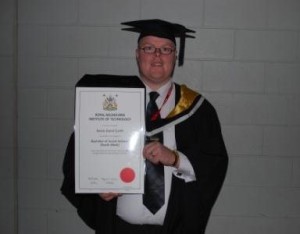In one of our seminars we start by asking people to draw a picture of the ultimate youth worker. We ask them to write around the picture what make this youth worker ultimate. It is always interesting to see what is written and what the picture looks like. The picture is often of a hip, hoodie wearing young person (even if the picture was drawn by someone in their forties) with all the coolness anyone can muser. The words that are used to describe this youth worker are cool, rapport builder, knows the new music and did we mention they had to be cool.
For the most part the things that people place down are superfluous. They are not needed to be a great youth worker. In fact most great youth workers have little idea about the new music or could ever see themselves in the category of “cool”. What this shows is that many youth workers have brought into the popular rhetoric as to what a youth worker looks like and is. The biggest issue for me and my staff is that so many youth workers do not speak about their values!
When we speak to truly great youth workers and ask them this question they spruik values such as social justice, participation, human dignity, self determination and human rights. We ask them what an ultimate youth worker looks like and they paint a picture of any person walking down the street. Old, young, black, white, qualified, unqualified it doesn’t matter.
A strong understanding of the values base which you bring to the profession of youth work is key to the ongoing effectiveness of your work.
What values do you bring?
